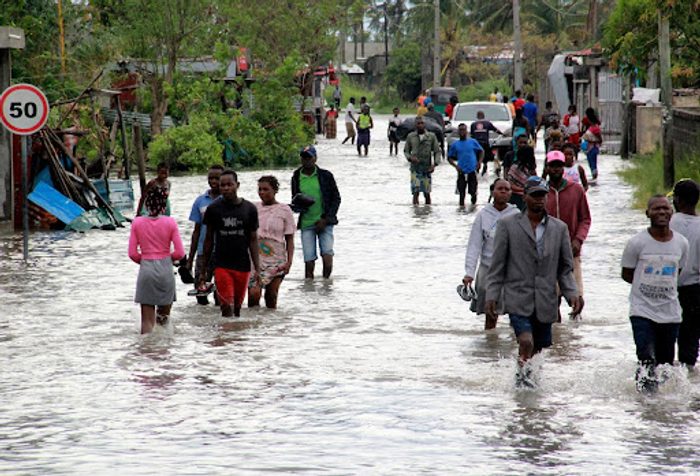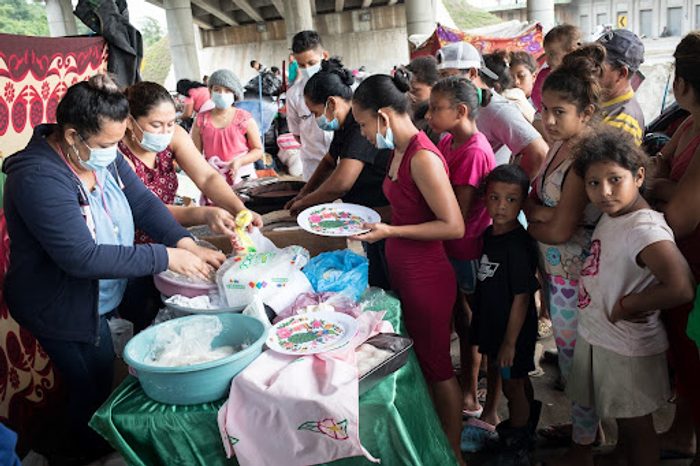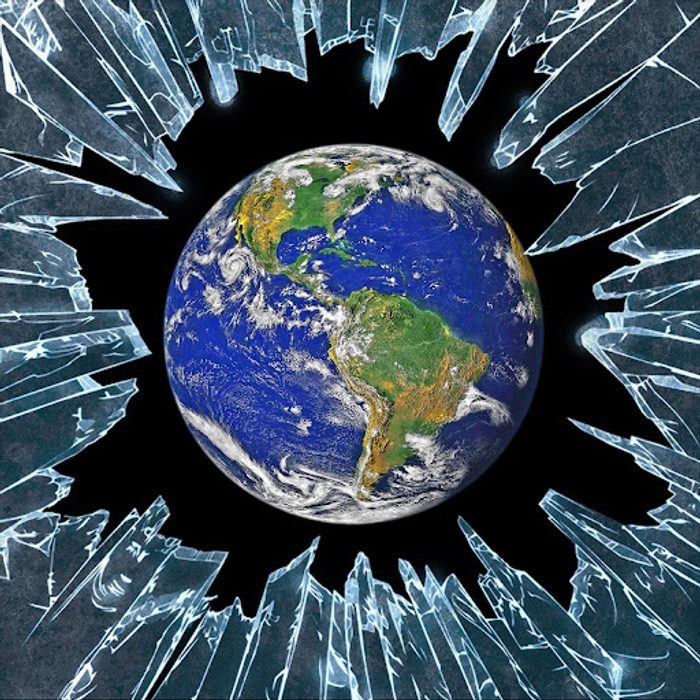Good morning, this is Kasmira. Today we’re reporting on the humanitarian impacts of climate change after speaking with IFRC’s chief Jagan Chapagain, who is in Glasgow this week. He says Cop26 has not gone far enough yet in helping the most vulnerable people, who often pay the highest price.
Meanwhile in Geneva, a branch of the UN promoting social cohesion and solidarity has opened offices at the Palais. Plus, in today's GESDA reads we look at why a proposal for the UN to create new rules of international behaviour in outer space may not be a bad idea. |

|

People make their way through floodwaters in Beira, Mozambique after Cyclone Eloise passed through the city, January 2021. (Keystone/AP Photo)
|
|
🌀 IFRC chief: we need urgent climate action to help crisis-hit communities.
IFRC secretary general Jagan Chapagain has warned that Cop26 “has not gone far enough” to help people on the frontline of the climate crisis. Chapagain, who is in Glasgow this week, said vulnerable communities needed urgent support to build resilience in the face of rising climate risks. Geneva Solutions spoke to Chapagain ahead of his trip to Glasgow to discuss what action is needed to support millions of people displaced by the impact of climate change.
Geneva Solutions (EN)
|
|
Here's what else is happening
|

Under the overpass at Chamelecón, people who lost their houses in hurricane Eta are fed by a family who arrive to cook breakfast every morning for over a hundred people. (Credit: Sean Hawkey/WCC)
|
|
📸 Climate change under the lens.
Amid all the discussions, pledges and debates taking place inside the cavernous rooms of the Glasgow Cop campus, it can be easy to forget what climate change looks like for people feeling its effects every day. An online photography exhibition organised by the World Council of Churches, in collaboration with British photographer Sean Hawkey, serves as a reality check. “These images remind us of the devastating impacts of climate change, and how dangerous it is for all of us if we don't act now,” said James Bhagwan, general secretary of the Pacific Conference of Churches.
Oikumene.org (EN)
|
|
|
Science and diplomacy reads by GESDA
|
|

(Credit: Pixabay)
|
|
A new law in space. Or for space.
“Last week, a group of diplomats from the UK proposed that the United Nations set up a group to develop new norms of international behaviour in space, with the aim of preventing the kinds of misunderstandings that could lead to war”, sums up a WIRED article (read below). Such a war in space could involve the destruction of satellites and space vehicles, if not stations, resulting in a disastrous avalanche of space debris - which is already a growing concern, for the safety of the hundreds of useful satellites orbiting the Earth.
“The proposal would create a new working group at the UN that will meet twice a year in Geneva in 2022 and 2023. By the end of that time, the group must reach consensus on new rules and identify areas in need of further investigation”, writes WIRED. Many countries and NGO support the idea, including the ICRC, which points out that “the use of weapons in outer space … could have significant impacts on civilians on Earth.” Establishing such new rules would be a first for more than four decades, and the 1967 Outer Space Treaty.
Most importantly, it could open the door to other discussions on other space-related issues, like the exploration and use of space resources. As Tanja Masson-Zwaan, deputy director of the International Institute of Air and Space Law at Leiden University, put it recently at the 2021 GESDA Summit in October, it is becoming urgent to clarify areas that were “not clearly addressed in the current founding treaties” on space, such the installation of safety zones around resource extraction areas; the creation of priority rights so investing companies’ interests are protected; the establishment of guidelines for dealing with waste on other celestial bodies (like the Moon and Mars) and further environmental protection measures; and assurances that “space exploration is done for all humanity, not just wealthier countries”.
“Space is for everybody. It’s not just for a few people in science or math, or for a select group of astronauts. That’s our new frontier out there, and it’s everybody’s business to know about space”, said Christa McAuliffe, American teacher and astronaut, who was killed in 1986 in the explosion of the space shuttle Challenger.
- Olivier Dessibourg
(EN)
|

This selection is proposed by the Geneva Science and Diplomacy Anticipator
GESDA, working on
anticipating cutting-edge science and technological advances to develop innovative and inclusive
solutions for the
benefit of the planet and its inhabitants.
|
|
GS news is a new media project covering the world of international cooperation and development. Don’t hesitate to forward our newsletter!
Have a good day!
|

|
|
Avenue du Bouchet 2
1209 Genève
Suisse
|
|
|
| |











